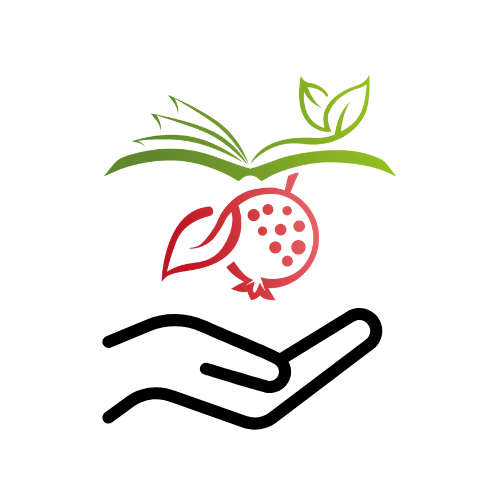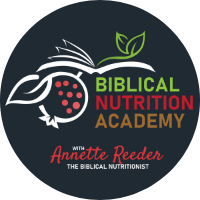
Undoubtedly, you’re heard recommendations to eat fruits and vegetables every day. But do you know why? There is a cornucopia of reasons! Today we’re looking at the health benefits of fruit - top 20 delicious list.
Fruits don’t tend to create as much vegetables (even though they are CHOCK FULL of amazing health-promoting nutrients!), but still most of us don’t eat enough of them.
Not only do we need fruits AND vegetables every day, we need a variety of them.
God created this world with an abundance of life-giving sustenance, but more than that, He gave us a huge variety to choose from.
He designed the world perfectly to meet our needs because He loves us with an everlasting, perfect love.
He loves you and wants the best for you. That includes the best in your health.
Importance Of Eating Fruits

The natural foods we eat each day contain thousands of different natural chemicals. Some of these are known and well-studied, others are known and unstudied, and still more are completely unknown and immeasurable.
It is hard to capture EVERYTHING God has done for us in the subject of science!
So far, scientists understand the relevance of a small percentage of these natural ingredients. Instead of appreciating these naturally-occurring chemicals in God’s creation, once these nutrients are discovered, scientists are able to find ways to make synthetic versions to add to our processed foods or supplements.
Imitation is a form of a compliment, and man is always imitating what God has given us. But man can’t duplicate what God made.
Aren’t we blessed to have the real thing in the original design, just the way He intended, from our Creator?
Health Benefits Of Fruits

Along with the known and unknown food factors are associated food factors. Not only do various natural phytochemicals (minerals, vitamins, etc.) often have individual benefits, when combined with others the benefit to our health is compounded.
Sometimes this is referred to as the synergistic effect of nutrients.
Synergistic means the total effect of the combined associated food factors and other nutrients has a greater effect when blended together than if the nutrients are isolated and used individually.
Often these same isolated nutrients have little effect by themselves.
It is like saying 1 + 1 = 3 when food is eaten in the form God gave us.
Here again,
The total package of nutrients in any of the foods listed in Genesis 1:29 is greater than the sum of its parts. {Russell, What the Bible Says about Healthy Living, 188.}
These associated food factors have been shown to protect humans from vascular disease, bacterial infections, viral infections, cancer, and much more.
We can decrease obesity by eating more low and very low energy density foods. A great way to do this is by adding fruits and vegetables to your menu. Check out these steps for adding these colorful foods to your diet.
Why Are Fruits Good For You

Overeating and eating unhealthy “foods” cause many of our health problems. Obesity has been inextricably linked to a long list of diseases.
We can decrease obesity by eating more low and very low energy density foods. A great way to do this is by adding fruits and vegetables to the menu.
To lose weight, we must eat fewer calories than we spend. However, adding fruits (and vegetables) to an existing eating plan that supplies sufficient calories or has more calories than needed can cause you to gain weight.
Instead, fruits and vegetables should be substituted for foods high in energy density.
To lower the energy density of foods, such as soups, sandwiches, and casseroles, substitute fruits and vegetables for foods such as high-fat meat, cheese, and pasta.
For example, vegetables such as carrots, broccoli, mushrooms, and celery can be added to a chicken noodle casserole, thereby lowering the calories per serving of the original casserole. Lettuce, tomatoes, onions, and other sliced vegetables can be added to sandwiches while decreasing the amount of high-fat meat or cheese. Many different vegetables can be added to pasta sauce.
Which Fruits Are The Healthiest

Does it matter what kind of fruit? Good question!
Whole fruit is lower in energy density and more satiating than fruit juices. Pulp-free fruit juices lose their fiber content in the process of juicing.
For weight control purposes, the whole fruit contains added fiber that helps us feel full.
Are canned and frozen fruits just as good as fresh?
Frozen fruits are good options when fresh produce is not available.
We need to be careful, however, when choosing canned food. Choose those without added sugar, syrup, cream sauces, or other ingredients that will increase calories, thereby raising the energy density.
Additionally, consumers should be aware that frozen and canned fruits and vegetables sometimes contain added salt, which is not found in fresh produce.
Fruit Health Benefits
And he will be like a tree firmly planted by streams of water, which yields its fruit in its season. Psalm 1:3
We’ve declared God’s original design for food good and that fruits are a part of that perfect design. Now let’s talk details!
Here is the top 20 delicious list of fruits and what makes them a must-have on the menu of healthy living.
There’s extra information about the first 3, but they all contain a bounty of health-promoting nutrients.
1. Apricots

Many Bible experts believe that the “apple” Adam and Eve ate in the Garden of Eden was probably an apricot and was misrepresented - mainly by painters in the Middle Ages.
The Bible never mentions the apricot by name, but that doesn’t mean it wasn’t a major part of the healing of those times.
Several scholars believe the apricot was one of the most abundant fruits of the Holy Land (right behind the fig).
In Proverbs 25:11, it’s written, “Like apples of gold in settings of silver is a work spoken in the right circumstances.” In nearby Cyprus, apricots are known as “golden apples,” which also is the literal translation of their Modern Greek name.Health Benefits Of Apricots
The key nutrients found in Apricots are:
- Vitamin A
- Fiber
- Vitamin C
- Calcium
- Magnesium
- B-Complex
- Phosphorus
- Copper
- Fructose, glucose, and sucrose
- Manganese
- Iron
- Potassium
- Beta-carotene
- Lycopene
- Tannin
Because of all these beneficial nutrients, apricots help:
- Treat constipation
- Prevent Cancer
- Help with bowel disorder
- Help clean blood, slowing down the aging process
- Benefit the
- Skin
- Heart
- Muscles
- Nerve tissues
Apricots also may be effective in controlling high blood pressure and heading off premature heart attacks, as well as in boosting the critical levels of minerals that often decline in women after they reach menopause.
That’s because apricots contain large amounts of potassium (which scientists think is necessary in controlling blood pressure), calcium, copper, and iron.
In addition to all this, the good news about apricots is: A single apricot contains only 17 calories, a mere 0.4 grams of fat, and no cholesterol.
2. Grapes

Then they came to the valley of Eshcol, and from there cut down a branch with a single cluster of grapes. And they went carried on a pole between two men. Numbers 13:23
That must have been some gigantic cluster of grapes! But such abundance was not unusual in the vineyards that were so important to the people of the Bible.
Grapes were the first thing Noah planted after the Flood. As Genesis 9:20 says, “Now Noah started off as a farmer and proceeded to plant a vineyard.”
In Bible times, grapes were eaten fresh or dried and eaten as raisins, just as they are today.
Most of the crop of the vineyards was made into juice, wine, and vinegar, although grapes were also pressed into cakes.
Health Benefits Of Grapes
Grapes are loaded with the following nutrients:
- Vitamin A
- Vitamin B
- Vitamin C
- Boron
- Zinc
- Potassium
- Tannin
These nutrients work to:
- Help protect against osteoporosis
- Fight tooth decay
- Stop viruses/Antiviral
- Antibacterial
- Anti-tumor agents
- Raise HDL (good cholesterol)
In years past, grapes were especially potent against viruses like polio and herpes simplex.
The reason, experts believe, is because grapes contain tannin, a virus fighter that is absorbed directly into the intestinal tract, where it does the most good.
Grapes also have extraordinarily high levels of caffeic acid, which has been shown to be a strong anti-cancer substance.
Resveratrol
Thus says the Lord: “As the new wine is found in the cluster and one says, ‘Do not destroy it, for a blessing is in it.’” Isaiah 65:8
Decades of studies show that antioxidants, called flavonoids, act as protective agents which help fight cardiovascular disease and many other disease-related problems.
Where can you find these helpful flavonoids? Purple grapes!
Muscadine Grapes
Research has gone on to discover that resveratrol is not the only ingredient for promoting health found in the grape. Recent research has discovered that the Georgia-grown muscadine grape produces a unique phytochemical: ellagic acid.
Dr. Joseph Maroon, in his book The Longevity Factor, explains that this unique ellagic acid found in muscadine grapes is virtually absent in other grapes and has powerful antioxidant and anti-cancer properties.
The polyphenols in muscadine grape skins have been shown to have positive effects in:
- Heart disease
- High cholesterol
- Diabetes
- Metabolic syndrome
- Other inflammatory conditions.
- Repairing the aging of DNA in our cells
- Helping prevent certain cancers, including:
- Breast
- Pancreas
- Esophagus
- Skin
- Colon
- prostate
3. Figs

...for behold, the winter is past; the rain is over and gone. The flowers appear on the earth, the time of singing has come, and the voice of the turtledove is heard in our land. The fig tree ripens its figs, and the vines are in blossom; they give forth fragrance. Arise, my love, my beautiful one, and come away. Song of Solomon 2:11–13
Beginning with the Garden of Eden, the fig, with its astonishing health-giving and healing powers, is mentioned more than fifty times in the Bible. In fact, it is the first fruit specifically named in Genesis 3:7.
Figs, either fresh or dried, have been prized since ancient times for their sweetness and nutritional value. Greek and Roman athletes ate figs to increase their stamina and improve their performance.
Even today in the Middle East, compote of dried fruits is a popular dessert.
Health Benefits of Figs
The key nutrients found in figs are:
- Calcium 3–4 figs supply 100 milligrams
- Phosphorus
- Magnesium
- Potassium
- B vitamins
- Fiber
- Iron
- Vitamin C
- Vitamin E
- Phytochemicals
What are these powerful nutrients helpful for? They:
- Kill bacteria and roundworms
- Aid digestion
- Treat hemorrhoids
- Lower cholesterol
- Good for thymus gland
- Help immune system
- Useful in treating coughs, hoarseness, and respiratory and lung disorders
- Helpful with uterine fibroids
- Help build strong bones
Want to find out more about figs and how to creatively incorporate them in your diet? Check out this video
Plus, find recipes to try out here.
I’ve shared a lot of information about the top 3 delicious fruits, but there are so many more! For the rest, though, I’ll simply list each fruit’s nutrients and the benefits these amazing, God-given foods provide.
4. Apples
The key nutrients of apples are:
- 84% water
- Fiber
- Protein
- Potassium
- Calcium
- Magnesium
- Phosphorus
- Vitamin A
- Vitamin B
- Vitamin C

Which help with the following:
- Cleanse the bladder
- Reduce Inflammation of colon
- Intestinal infections
- Diarrhea
- Arthritis
- Acid stomach
- Lower blood cholesterol
- Lower blood pressure
- Herpes and viruses
- Protect against danger from radiation therapy and x-rays
- Stabilize blood sugar
5. Bananas

Bananas are packed with these key nutrients:
- Potassium
- Vitamin B6
- Vitamin C
Which help with:
- Nerves
- Hypertension
- Hemorrhoids
- Heart Disorders
- Ulcers
- Diarrhea
- High Blood Pressure
- Edema
- Intestinal disturbances
- Muscle contraction and relaxation
- Supply good bacteria in colon
6. Blueberries

The key nutrients:
- Vitamin C
- Potassium
- Fiber
- Manganese
Which help with:
- Hypoglycemia
- Tinnitus (ringing in ears)
- Rejuvenates pancreas
7. Blackberries

Blackberries are loaded with these nutrients:
- Vitamin C
- Manganese
- Vitamin K
- Fiber
Which help with:
- Chronic appendicitis
- Constipation
- Diarrhea
- Building blood
- Anemia
8. Cherries

The key nutrients are:
- Calcium
- Potassium
- Phosphorus
- Magnesium
- Copper
- Vitamin B1
- Vitamin B5
- Vitamin C
Which help with:
- Preventing tooth decay
- Removing toxins from the body
- Aiding in gallbladder function
- Aiding with liver function.
- Gout (excellent for this)
- Rheumatism
- Paralysis
- Arthritis
- Stunted growth
- Obesity
9. Cranberries

The key nutrients are:
- Vitamin B6
- Vitamin C
- Vitamin E
- Vitamin K
- Manganese
- Potassium
- Copper
- Fiber
Which help with:
- Kidneys and Bladder
- Asthma
- Skin
- Intestinal antiseptic
- Bladder infections
- Protect cells from free radical damage
10. Grapefruit

The key nutrients are:
- Vitamin C
- Beta Carotene
- Potassium
- Calcium
- Magnesium
Which help with:
- Cardiovascular system
- Chest congestion
- Protect the arteries
- Cancer protection
- Lower blood cholesterol
11. & 12. Lemons And Pineapples

The key nutrients are:
- Vitamin B6
- Vitamin C
- Potassium
- Iron
- Manganese
- Copper
Which help with:
- Cleansing the bloodstream
- Cleansing the liver
- Inflammation
- Colds, influenza, and sore throat
- Bronchitis
- Asthma
- Digestion
- Heartburn
- Diabetes
- Scurvy
- Rheumatism
- Fevers
13. Oranges

The key nutrients are:
- Vitamin A
- Vitamin C
- Fiber
- Potassium
- Carotenoids
Which help with:
- Cancer prevention
- Sinus, allergies
- Upper respiratory issues
- Collagen formation
- Colds & flu symptoms
- Gum disease
- Bruising
- Iron absorption
14. Papaya

The key nutrients are:
- Vitamin A (specifically, carotenoid lycopene)
- Vitamin C
Which help with:
- Acidosis
- Colon disorders
- Enzymes
- Digestion
- Ulcers
- Breaks down unwanted substances, including uric and toxic acids in the body
15. Peaches

The key nutrients are:
- Beta-carotene
- Potassium
- Fiber
Which help with:
- Preventing cancer
- Preventing heart disease
- Colon disorders
16. Pears

This fruit is packed with these nutrients:
- Vitamin C
- Vitamin K
- Fiber
- Potassium
- Manganese
- Folate
- Magnesium
- Copper
Which help with:
- Arthritis
- Gout
- Lungs
- Stomach/digestive issues
17. Plums/ Prunes

The key nutrients are:
- Vitamin A
- Vitamin C
- Vitamin E
- Vitamin K
- Benzoic acid
- Fiber
- Potassium
- Copper
Which help with:
- Lowering blood cholesterol
- Constipation
- Kidney disorders
- Liver disease
- Blood poisoning
- Prevent parasites
18. Pomegranate

The key nutrients are:
- Vitamin B6
- Vitamin E
- Vitamin K
- Folate
- Potassium
- Manganese
- Calcium
- Phosphorus
- Copper
Which helps with:
- Inflammation
- Cancer prevention
- Heart health
- Memory
- Diarrhea
- Sore throat
- Fever
19. Raspberry

The key nutrients are:
- Vitamin A
- Vitamin B-complex
- Vitamin C
- Vitamin K
- Calcium
- Iron
- Potassium
- Magnesium
- Fiber
Which help with:
- Heart health
- Bone strength
- Arthritis
- Allergies
- Liver tonic
- Diarrhea remedy
- Frequent urination
- Impotence
20. Strawberries

The key nutrients are:
- Vitamin C
- Potassium
- Fiber
- Iron
Which help with:
- Block the transformations of nitrosamine, a powerful cancer-causing substance.
- Destroy viruses such as retro-viruses and herpes viruses.
- Protecting against cancer
- Reducing DNA damage
- Skin disorders
- Acne
Which Fruits Are Good For Health - Fresh, Frozen Or Dried

Fresh fruit is best, but we don’t always have access to fresh, organic fruit, as it’s seasonal. Frozen and dried fruits are good alternative options.
Dried fruit is processed minimally by the sun or hot air. The water content is reduced from 80 percent to 20 percent.
Dried fruit has a high concentration of minerals (iron, copper, and potassium), fiber, and beta-carotene.
However, be aware that dried fruit has a high percentage of fructose sugar and vitamin C is lost in the dehydrating process.
As stated previously, frozen fruits are good options when fresh isn’t available.
What are the benefits of fresh produce?
Produce tastes best when it’s fresh.
Plus, the nutritional value is higher when foods are picked fresh and delivered to a retailer within one hundred miles of your home.
Fresh local produce is usually cheaper than non-local, and when you can’t buy organic, local produce is a good choice.
Retailers are now offering fresh produce that’s grown by local farmers. Crops are harvested near peak ripeness and delivered to the store quickly—rich in flavor and freshness.
What is a Farmer CSA?
Buying from a local farmer at a produce stand, farmer’s market, or CSA (Community Supported Agriculture) gives you a chance to ask how the food was produced and determine if it meets your standards.
A CSA is a way for the food buying public to create a relationship with a farmer. By making a financial commitment to a farm, people become “members” (or “shareholders” or “subscribers”) of the CSA.
Most CSA farmers prefer that members pay for the season up-front, but some farmers will accept weekly or monthly payments. Some CSA’s also require that members work a small number of hours on the farm during the growing season.
A CSA season typically runs from late spring through early fall.
Choosing The Best Fruits To Eat
Consider the following tips when choosing produce:
- Avoid buying produce with blemishes, wrinkled skin, mold, or a waxy look. Instead, look for food that is firm and has a continuous color that is appropriate for the food.
- Pick up all cartons and see if there is any visible mold on the bottom. All cartons should be dry and not have juice in the bottom.
- Citrus fruits should not be chosen based on color unless they are organic; otherwise they typically have the color sprayed on them.
- Buy watermelons by weight. They should be heavy for their size and the bottom should be yellow tinged.
- Remember to use your sight, smell, touch, and taste (if allowed) to find the very best treasures.
- While at the store, look for food storage bags that will lengthen the life of your produce. These come in food-specific varieties. The bags are worth the investment, and they are reusable.
Fruits are a wonderful, varied, blessed gift from the Lord and an essential part of a healthy diet.
What fruits will you add to your next grocery list? How will you get 1-2 servings of fruits (5 total, including vegetables are ideal) each day?
I’d love to hear how you’re blessed by this top 20 delicious list and other fruits that weren’t listed!
In the middle of its street, and on either side of the river was the tree of life bearing twelve kinds of fruit, yielding its fruit every month; and the leaves of the tree were for the healing of the nation. Revelation 22:2
For more on fruits and God’s other wonderful gifts, check out the treasures of Healthy Living Bible Study and the Treasures of Health Nutrition Manual, where this information comes from and is elaborated on further.





